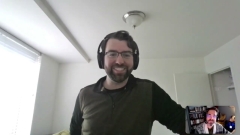Students Share Winning Strategy for National Competition to Prevent Terrorism
| by Stephen Diehl and Andrew Cassel
A team of 13 Middlebury Institute students took the top prize in the Department of Homeland Security’s Invent2Prevent competition, which challenged them to innovate against violence and terrorism.




